News 2020
Tips for seafarers and shipowners
The Corona virus has become a maritime issue as well. We give advice to seafarers and shipowners how to protect oneself from the virus and what to do in the event of suspected cases.
- The "Medizinisches Handbuch See" by the Maritime Medical Service of BG Verkehr published in November 2019 contains direct recommendations for hygienic measures to be taken when treating possibly infected persons on board. Which include among others
- for the person treating the patient:
- Personal protection by wearing the personal protection equipment (PPE) on board, e.g. examination gloves, face masks covering mouth and nose as well as disposable apron
- Hand hygiene with virucidal disinfectant (no. 18.01 of the German medicine chest) to avoid transmission of pathogens
- for the patient:
- Isolation measures of infected persons or those suspected of being infected and people they have been in contact with
- for medical rooms on board
- Hygiene measures in rooms and for facilities used for medical purposes
- The necessary information about the procedure when contacting the radio medical advice service and cooperation with the port health authorities, including the required reporting procedures, are given in the "Medizinische Handbuch See". The "Medizinische Handbuch See" is available at Dingwort Verlag and can be ordered on its website (https://dingwort-verlag.de/medizin/). The English version will be available from spring.
- for the person treating the patient:
- In the event of suspected cases, contact the radio medical advice service TMAS Cuxhaven as early as possible where you will receive further advice on the treatment of the ill person.
- On a European level, the working group "EU Healthy Gate joint action consortium" has compiled preliminary recommendations for shipping companies when dealing with the Corona virus. Pages 2-8 of the "Interim Advice for ship operators" contain direct recommendations for cruise ships, page 9-11 for cargo ships.
- If there is a suspected case on board a ship that will call on a German port, please contact the port health authorities prior to the arrival. Their experts will inform you about further measures. The contact data for the port health authorities in German ports are listed on the website of the city of Hamburg.
- Current and detailed information about the Corona virus in general are given on the website of the Robert Koch Institute, the central institution in Germany regarding disease control and prevention, as well as on the website of the World Health Organization WHO.
- The latest travel notices for the countries where the Corona virus has occurred can be found on the website of the Federal Foreign Office.
The Assembly of the United Nations adopted a resolution regarding the classification of seafarers as key workers. All states must still ensure the facilitation of crew changes. Seafarers should receive vaccination against the Corona Virus as soon as possible.
Seafarers are key workers – this is the central message of UNO Resolution A/75/L.37 that was adopted by 71 member states. This fact lays the groundwork for concrete measures within the resolution, which governments, international organisations and relevant involved parties can implement. These include mostly safe crew changes, unrestricted arrivals and departures of seafarers and repatriation of "stranded" seafarers.
According to the United Nations, about two million seafarers on 98,000 merchant vessels provide for the transport of 80% of the goods in the global trade and ensure the seamless provision of medical equipment, food and other essential goods, despite the Corona pandemic.
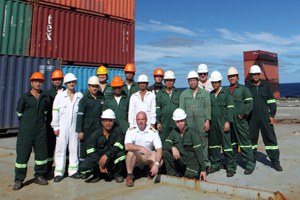
The Secretary General of the International Maritime Organization IMO, Kitack Lim, was pleased about the adoption of the resolution. He thanked the states that have recognized seafarers as key workers. Resolving the ongoing crew change crisis is, after all, a human rights issue, says Lim.
"Two million seafarers among which are about half a million employed by European shipowners play a key role in maintaining the global logistics chain. We thank the seafarers for their hart work" says Martin Dorsmann, Secretary General of the European Community Shipowners’ Associations, ECSA. In Addition, ECSA affirms their support of IMO's call to consider priority for seafarers regarding the upcoming vaccination campaign against the Corona Virus.
Shipping companies can apply for their cabotage approval online via www.deutsche-flagge.de/en. In addition, companies can register their interest in transports online. This way, the Generaldirektion Wasserstraßen und Schifffahrt (GDWS) optimizes their service for sea cabotage.
Cabotage is about the carriage of persons or goods with ships under foreign flag in German coastal waters. A cabotage approval is required when persons or goods are intended to get transported commercially from one place to another within German territory using German coastal waters (12 nautical mile area) on ships without a European flag (except Norway).
During the application process, the GDWS checks whether EU-flagged ships are available for the intended transport (a shipping space capacity verification). If this is the case, the cabotage application is denied.
This online option for cabotage applications and registration of carriage capacity, e.g. dry cargo ships, dredgers and construction site traffic, improves the economic chances of companies with EU-flagged ships.
The new online service has been programmed by the IT department of BG Verkehr and can be found under the heading "Flag · Register".
The German flag is always available for you - on 365 days of the year. You can reach our specialists under the phone number +49 3190-7777 for all questions about maritime shipping under German flag
The maritime 24/7 hotline is offered by the Federal Maritime and Hydrographic Agency, BSH. In addition, the stand-by service of the Ship Safety Division of BG Verkehr is also available. More information is given under "Contact Details".
From 1 January 2021 you can reach our "Zentrale Einsatzsteuerung" (a central deployment centre) for ship safety surveys under the central phone number +49 40 361 37-298. You can still send the application per email to besichtigungen@bg-verkehr.de.
The "Zentrale Einsatzsteuerung" of the Ship Safety Division of BG Verkehr receives the customers' requests for ship surveys and plans the deployment of the surveyors. With the new uniform phone number, the BG Verkehr enhances their service for shipping companies.
A medical emergency at sea – no rescue service, no hospital, no doctors. It is the master's or navigational officer's obligation to help. The newly published handbook can help to facilitate the best medical care possible in places far away from medical infrastructure.
This book from practitioners for practitioners offers compact treatment recommendations for emergencies, injuries and illnesses on board sea-going vessels.
350 illustrations and texts that are illustrative, easy to understand and, above all, aimed for application during sea voyages support medical care on board.
As a special service, educational films showing step-by-step sequences of complex treatment measures can be watched with QR Codes.
The English version of the Maritime Medical Handbook is now available at the price of 159,00 € at:
Dingwort Verlag in Hamburg.
It can also be ordered online via https://dingwort-verlag.de/medizin/.
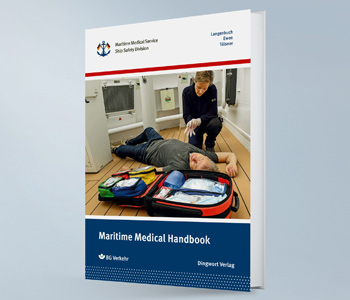
At the end of the year at the latest, ships with more than 500 GT on international voyages require a IHM Certificate (International Certificate on Inventory of Hazardous Materials) of the Flag State and an approved List of hazardous materials contained in the structure or equipment of the ship. These requirements are stipulated in Regulation EU 1257/2013 on ship recycling. Further information can be found in ISM Circular 03/2019.
Employees of shipping companies should note: Please assign a classification society or an assessor to prepare the IHM if this has not been done yet.
On 24 September, IMO celebrates the World Maritime Day together with the rest of the shipping community. This year's theme "Sustainable Shipping for a Sustainable Planet" puts the focus back on environment protection and the role the shipping industry plays in it.
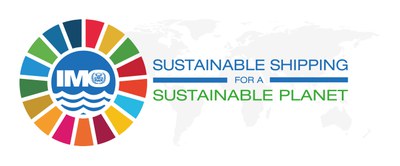
The importance of the shipping industry has once again become evident during the corona pandemic. A functioning trade network connects the world and helps to support all parts of the world at a global level. When rebuilding the economy after this crisis, shipping will play a central role, according to Kitack Lim, IMO Secretary General. And this is also why this year's theme of the World Maritime Day "Sustainable Shipping for a Sustainable Planet" is so vital. Shipping has to become more environmentally friendly to play its part in leading the world into a sustainable future.
Already, the IMO makes an effort towards this goal having introduced several environment requirements such as energy efficiency for ships, sulphur limits for fuel, provisions for sewage and garbage etc. Thereby, the IMO and the shipping industry implement some of the 17 sustainable development goals as part of the Agenda 2030 of the United Nations. Further plans to protect the environment are being planned, such as the reduction of green house gases produced by maritime traffic.
Especially, because the crucial importance of shipping and its employees has become evident during this pandemic, the current situation on board many ships worldwide will be a topic at the World Maritime Day 2020. On many ships, crew changes have not been possible for many months. At land, many seafarers wait to commence their service, and receive the wages they need, while on board, seafarers are waiting to be relieved as they worry about their family during the pandemic and require a break from their work out at sea, not just from the perspective of labour law but also from a humanitarian perspective.
On 24 September Secretary General Lim will hold an online panel where he and other experts of the topic sustainable shipping will speak. Via Twitter @IMOHQ and the hashtag #WorldMaritimeDay anyone can participate in the discussion.
The Federal Maritime and Hydrographic Agency (BSH) and the United Kingdom Hydrographic Office (UKHO) will cooperate from October 2020 on the production, maintenance and distribution of nautical charts in A0 format for German waters. These nautical charts are mainly used by the commercial shipping industry, which is obliged to equip its vessels. The faster transmission and provision of corrections for international shipping will increase the safety and ease of navigation in the German sea area.
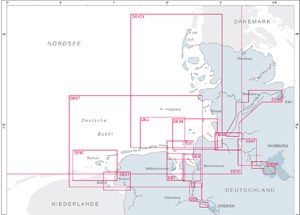
Due to this cooperation of the two authorities the BSH's nautical charts will reach a wider range of users than before, and both authorities will save resources due to the division of labour in production, corrections and distribution. The BSH will continue to be responsible for the chart content and its correction, while the UKHO will take over the printing and distribution of the charts and the publication of corrections. Until now, the two services have produced nautical charts for the same area independently of each other. As a result, corrections were first reported by the BSH as German Notice to Mariners, which were forwarded to the UKHO which then included them as corrections in their nautical charts. The cooperation of the services enables the direct and thus faster transmission of corrections.
Distribution and maintenance of the cooperation charts will begin on October 1 for initially five nautical charts. By the end of 2021, BSH and UKHO will extend the cooperation to all 15 nautical charts for the North Sea. To enable this, both parties coordinated the area coverage, nautical chart content, publication dates and also developed routines for correcting the nautical chart content.
The BG Verkehr, the BSH and the Federal Office for Information Security (BSI) published a circular on protection against maritime cyber risks. The practical guidance called "ISM Cyber Security" contains recommendations for shore-based and ship-based IT protective measures. With its help, shipping companies can improve their protection from cyber risks within the framework of the ISM system.
The issue cyber security becomes increasingly important for maritime shipping as a crucial part of the logistics chain. If not before, than at the latest since the attack with the malware "NotPetya" in 2017 resulting in damages of several hundred million Euros for the shipping company Maersk alone, the extent of maritime cyber attacks has become evident.
With resolution MSC.428(98), the IMO urges shipping companies to protect against cyber risks from 2021. Ship operators should integrate appropriate measures in their existing ISM systems.
The new circular "ISM Cyber Security" by the BG Verkehr, the BSH and the BSI provides an overview of the issue maritime cyber security and aids shipping companies in developing a consistent cyber risk management. As a minimum, the three authorities advise the IT-Grundschutz Profiles by the BSI for shore operations and for ship operations. These model security concepts contain specific recommendations for IT security measures on board and onshore.
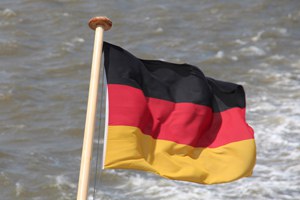
In a new video, the Maritime Medical Service of the BG Verkehr explains how to put on and take off personal protective equipment in the right way. By following the instructions, navigational officers responsible for medical care on board can protect themselves effectively against infectious diseases. The video is now available.
How do you protect yourself when an infectious disease occurs with a person on board? This is not a new question, but the COVID-19 pandemic has raised awareness with seafarers once again. The "Maritime Medical Handbook" by the Maritime Medical Service, which has recently been released, gives clear answers and has now been supplemented with a new video.
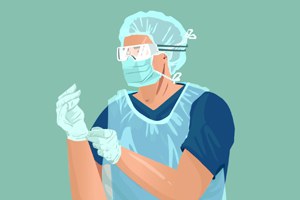

The best protection against contagious infections on board is regular washing of the hands, disinfection and wearing personal protective equipment (PPE) such as gloves, an oronasal mask and safety goggles. But even the best protective equipment is only effective if the seafarer puts it on and takes it off in the right way. The new video by the Maritime Medical Service "Putting On and Taking Off Personal Protective Equipment (PPE)" gives advice. The film takes about three minutes and explains, among other things, in which order the protective equipment is to be put on to avoid unwanted infections.
With a QR code or the direct link https://www.medizinisches-handbuch-see.de/Schutzausruestung_en.html, seafarers can watch the video in German or English. The film is part of the "Maritime Medical Handbook", which is an essential practical guide to medical care on board sea-going vessels.
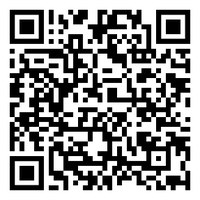
Since the video was developed after the recent version of the medical handbook had been published, the QR code could not be included in it. Users of the handbook should stick the QR code onto the pages 26 and 485. In the English version of the Maritime Medical Handbook, which will be published soon, the QR code will be included.
The International Chamber of Shipping (ICS) has published a guidance document for ship operators. It gives advice on the best practices to protect their seafarers and how to deal with suspect cases and confirmed cases on board the ship. As the corona virus has spread globally by now, the ICS has broadened its guidance adding for example an instruction to create covers for mouth and nose. Further topics include recommendations to enhance mental health and how to procure prescription medication.
COVID-19, more commonly known as the coronavirus, has developed into a global pandemic. In order for maritime shipping to continue its operations, shipping companies should undertake measures to protect their members of crew and passengers. In the new guidance document "Coronavirus (COVID-19) - Guidance for Ship Operators for the Protection of the Health of Seafarers", the International Chamber of Shipping ICS explains the right protection measures for the novel coronavirus and how to react if a case of illness or a suspect case occurs on board.
In the guidance document, it is explained how seafarers should generally protect themselves preventatively, especially with hygienic preventative measures such as regular hand washing and the right conduct when coughing and sneezing (i.e. with a tissue or into the crook of the arm). Following the recommendation of the World Health Organization (WHO), ICS also assess that wearing masks on board in general should not be mandatory. Where it is not possible to keep the necessary distance, it is recommendatory however. The Guidance introduces different ways to create a mouth-nose cover yourself.
On their website and in Annex A, ICS provides posters that can be put up by ship operators on board their ships for information purposes for crew and passengers. The crew should be informed about how to deal with suspect and confirmed cases. A ship-specific outbreak management plan should be developed for concrete guidance of the crew. In addition, WHO developed a guide directed in particular at authorities dealing with COVID-19 outbreaks.
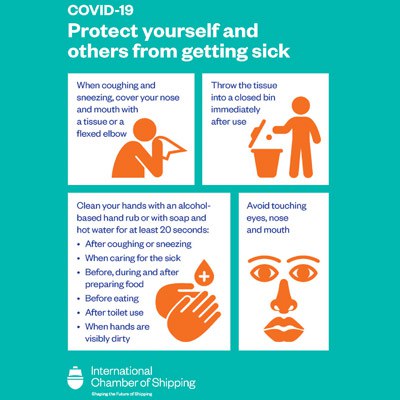
Additionally, the Guidance provides specific and important advice for persons responsible for medical care on board the ship. Personal protection with suitable protective equipment, effective isolation and disinfection as well as competent care of the patients should all be equally ensured.
The Guidance identifies three groups in relation to containing the outbreak potential: confirmed cases, suspect cases and people who have been in close contact to confirmed or suspect cases. Any suspect case has to be reported by the master to the next port of call. The virus has to be verified by a laboratory. The subsequent measures are given in the Guidance.
Prior to any persons entering the ship, their health condition needs to be checked. The questionnaire in Annex C can be used for this. The Guidance discusses the pros and cons of tests prior to boarding. The so called Shipboard Self-Distancing for the first 14 days on board is recommended and explained.
Despite the current and ongoing precautionary measures, there may be entry restrictions in ports, restrictions on crew changes and cargo operations or general delays. The Guidance also addresses this issue. A link to a regularly updated map on current port restriction is provided. A new Annex outlines under which conditions seafarers can obtain their personal prescriptions in the different countries and what needs to be done in advance to ensure that medication reaches the ship.
Worries about family, other crew members and oneself can have serious affects on the mental health of seafarers. Impeded crew changes and extension of service times on board for several months add to this. Every person deals differently with stress, isolation and emotions like fear, anxiety and worry. The guidance discusses thoroughly what can be done to deal with difficult moments and develop uplifting behaviour.
According to a survey by the German Shipowners' Association (VDR), revenue of member shipping companies have fallen by 40 % due to the Corona Pandemic. The number of ships without engagement is growing. The German Flag has easy regulations regarding laid-up ships.
Some flag states have extensive requirements for laid-up ships, e.g. changes of ship registration or extensive lay-up plans. The German Flag, however, has no such bureaucratic obligations.
Neither do laid-up ships under German flag require a separate Safe Manning Certificate. For short-term shifting of a ship from a port or anchoring place to another location, shipowners can apply for a Safe Manning Certificate that is valid for up to 48 hours with the Ship Safety Division of BG Verkehr. The prerequisites for this are given under our header "Ship`s manning".
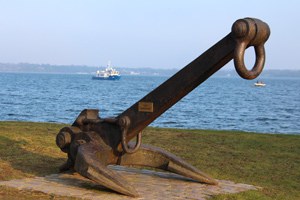
Equipment approved according to the EU Marine Equipment Directive and provided with the wheelmark had so far been published in the MarED Database. Recently, a new MED Database by the EU Commission under the umbrella of EMSA (European Maritime Safety Agency) was established.
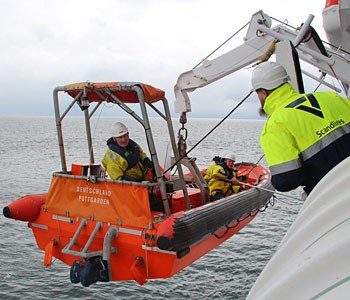
The approval of marine equipment is subject to a multistage certification process carried out by notified bodies under the EU Marine Equipment Directive. At the end of the certification, a so-called wheelmark is attached to the approved equipment item; it shows that the approval is valid all-over Europe. Equipment requiring approval includes life-saving appliances, equipment for marine pollution prevention, fire protection equipment, navigation and radio-communication equipment, equipment required under COLREG and under SOLAS Chapter II-1.
An updated Implementing Regulation listing all of the approved equipment along with the individual approval requirements supplementing the Marine Equipment Directive is published annually. The approval process is outlined in the Directive itself.
The new MED Database by the EU Commission is maintained by EMSA (European Maritime Safety Agency). It lists in detail the ship's equipment that has been approved. After a registration, the following can be found:
- manufacturer, product information, approval information and approving body,
- the Directive as well as any amendments currently in force.
In comparison to the former database, some changes have been introduced: manufactures can now actively participate in the new system and add information on their product. Adding an e-tag facilitates further functions. In addition, the market surveillance authorities have an extended access to product data.
Now, after some test participants of the different user groups tested the new MED Database with regard to its functionality, it is open to the public with the data sets from the old system as well as all current entries.
The previously used MarED Database remains online on the website of MarED (Group of Notified Bodies for the Implementation of the European Marine Equipment Directive) but is no longer updated.
Further information on the topic approval of marine equipment is given under our heading "Construction · Equipment".
For a long time, asbestos was considered a miracle product: the natural mineral is fire resistant, an insulator, easy to process and inexpensive. But asbestos causes illness and can give rise to cancer. BG Verkehr summarized the things shipping companies have to observe when they flag-in a ship that is contaminated with asbestos.
Those who worked with asbestos in the past often used to breath in the dust and thereby the fine asbestos fibres. A possible result: malignant cancer tumours or changes in the lining of the lung. The employer's liability insurance associations recognize asbestos as a cause of a lung disease known as asbestosis, and as an occupational disease. Asbestosis is the most common cause of death among the terminal occupational diseases. There can be several decades between working with asbestos and the onset of the disease. On average the latency period is 38 years.
Since 1993, asbestos may not be produced or used in Germany, and on a European level since 2005. From 2019 all ships under EU flag from 500 GT must have an inventory of hazardous materials, which must also include asbestos. With the Regulation EU/1257/2013 the EU legally implements the provisions of the Ship Recycling Convention (“Hong Kong Convention”).
Globally, however, there is no ban on asbestos. So, there may still be asbestos present on older ships. If such a ship flags-in under the German flag, the shipowner will have to conduct a risk assessment, compile an asbestos cadaster and arrange mandatory medical check-ups for the seafarers. The prevention division at BG Verkehr has developed a compilation of the shipowner’s obligations when operating an asbestos-contaminated ship.
In addition to this compilation, ship operators have to comply with the provisions of the international SOLAS Convention regarding the ban of asbestos on sea-going vessels. The Circular by the Maritime Safety Committee of the IMO MSC.1/Circ.1374 "Information on prohibiting the use of asbestos on board ships" provides more detailed requirements and information on the topic asbestos on sea-going vessels:
- On ships built before 1 July 2002, asbestos containing materials (ACMs) may be installed and approved as long as they do not pose a risk to the crew's health.
- On ships built on or after 1 July 2002 and before 1 January 2011, new installation of ACMs has been allowed only in exceptional cases.
- On ships built on or after 1 January 2011, ACMs have not been allowed to be installed (refer to SOLAS Chapter II-1/3-5).
The Circular was published in the German "Verkehrsblatt" (transport gazette) 19/2013 on 23 September 2013 in the German language and is mandatory for ships flying the German flag.
Specialists discover asbestos on some sea-going vessels during inspections at a later point in time – for example while compiling an Inventory of Hazardous Materials (IHM) in accordance with EU Regulation 1257/2013 and the Hong Kong Convention on the Recycling of Ships. In these cases, a transitional period of three years applies to carry out an asbestos abatement on board or an exchange of all of the ACMs (refer to Circular MSC.1/Circ.1374). This transitional period of not more than three years cannot be extent, not even if:
- during this time period the ship was temporarily flying a different flag or
- asbestos had already been identified three years prior on a ship that was flying a foreign flag and is now about to change to the German flag.
For questions regarding these requirements, the experts of the Machine Department of the Ship Safety Division of BG Verkehr are gladly of assistance (e-mail maschine@bg-verkehr.de or contact qualified engineer Holger Steinbock via phone: +49 40 361 37-217).
As of late, the Deutsche Seemanns Mission e. V. (DSM – German Seamen's Mission) offers seafarers a new service. With the web-address https://dsm.care, the DSM operates a chat platform on which seafarers can turn to employees of the Seamen's Mission with their issues, worries and distress.
The DSM has a widely spread network with its 16 national and 14 international stations with seamen's clubs, hotels and on-board counsellors. However, the corona pandemic has completely changed the work of the seamen's missions as well. The popular facilities for seafarers had to close and the on-board counselling cannot take place in same manner as it did before either. Long counselling sessions are not possible – because of the fear of infection. Sometimes what remains is a small talk on the gangway so that the connection with the outside world does not completely break off.
In this situation, the DSM has started their chat counselling which can be accessed worldwide via the internet address https://dsm.care. Co-initiator Matthias Ristau, seamen's pastor of the German "Nordkirche", explains: "All encoded and safe, available from early in the morning till late at night". Especially now that many seafarers fear for the well-being of their families, such a service is all the more important, he says.
On the chat platform, seafarers meet professional counsellors, experienced social workers and psycho-social experts of the DSM who are most familiar with the special living situation and working environment of seafarers.
DSM.care was developed by a DSM team and is an additional offer for seafarers under these changing conditions of maritime navigation. This way, seafarers can be provided counselling support during straining situations right there and then and no matter where with the click of a mouse or via the smartphone. The DSM affirms: Even if the internet cannot replace personal contact, the members of staff of the German Seamen's Mission are there for the seafarers as contact partner.
Medical equipment for sea-going ships does not come under the export stop of the EU which has recently been enacted because of the Corona pandemic. This has now been clarified by the EU Commission. Therefore, pharmacies can supply the required equipment for the on-board pharmacy without impediment.
Due to the current Corona pandemic, the EU Commission has recently enacted to permit the export of medical protective equipment only after an official export authorisation (Implementing Regulation (EU) 2020/402 of 14 March 2020). Subsequently, some pharmacies were not able to supply without impediment the mandatory gloves and face masks as part of the medical equipment on board German-flagged sea-going vessel.
The Directorates-General for Mobility and Transport (DG Move) and Taxation and Customs (DG TAXUD) of the EU Commission have now clarified in a joint communication to the German Shipowners' Association (VDR) of 23 March that medical equipment for sea-going vessels does not come under the current export restriction. This is based on a special regulation for ship equipment. According to Article 269 Paragraph 2 letter c of Regulation (EU) No 952/2013 (Union Customs Code): "goods delivered, VAT or excise duty exempted, as [...] ship supplies are not subject to customs formalities in relation to export from the EU customs area - and therefore are also not subject to the current export restrictions for medical protective equipment.
Notwithstanding customs restrictions, pharmacies equipping ships can continue to supply and send medical protective equipment to sea-going ships.
In its Annual Report 2019 on the German Maritime Labour Act, the Ship Safety Division of BG Verkehr comprehensively presents how it verified compliance with the requirements of the German Maritime Labour Act throughout the last year. A guidance document on the topic "Working and living on board" aids with the implementation of the German Maritime Labour Act.
Since 2013 the Maritime Labour Act implements the International Maritime Labour Convention (MLC) on ships under German flag. With these provisions, mandatory and comprehensive regulations regarding working and living conditions of seafarers have been established. Important topics like hours of work and rest, food and catering, payment of wages, occupational health on board and many more are now clearly regulated and are verified on a regular basis.
36 MLC surveyors inspect international ships abroad and nationally regarding their compliance with the requirements of the Convention for the Ship Safety Division of BG Verkehr. Maritime Labour Certificates and Fishing Labour Certificates are typically issued as electronic certificates by now.
The employees of the ISM / ILO Department attend to complaints of seafarers about working and living conditions, approve private recruitment agencies and ensure that shipping companies under German flag are informed about current topics of this topic area. The ISM / ILO Department has now published its Annual Report 2019.
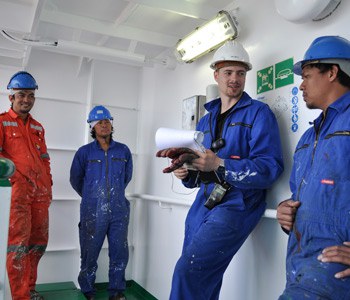
In the middle of the year 2018, the fully revised Guidelines on the implementation of the Maritime Labour Act on board of German flagged ships was published. Compared to its previous version, the experts of the Ship Safety Division completely revised the topic area health and safety protection and accident prevention. New information about drinking water on sea-going ships as well as maps of the trading areas for medical equipment were added. For the first time, the Guidelines contain specific information about contracts of employment and hours of work and rest for work on board fishing vessels.
With this QR Code, you can download the MLC Guidelines directly to your phone and have them at the ready whenever you need them:
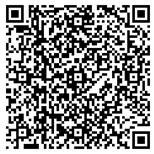
The World Maritime University with its headquarters at Malmö/Sweden has always been supported in many different ways by the Federal Republic of Germany. The association "Friends of WMU Germany e.V." extends this German support to the maritime sector in general, and thus facilitates cooperation with the World Maritime University.
Maritime internationality finds an expression in the World Maritime University. The WMU was founded in 1983 at an Assembly meeting of the International Maritime Organisation IMO as an UN institution. In many countries outside of Europe and North America, appropriate educational facilities to realize the UN's sustainability goals for protection and usage of the seas do not exist.
At three locations over the world – Malmö/Sweden the main location, Shanghai/China and Dalian/China – maritime-related courses of study offer the students to expand their knowledge and further develop their ongoing career in the maritime sector in an international setting. Various Master and PhD programmes as well as programmes for professional development offer the opportunity to influence the future of maritime shipping. Many graduates afterwards take on important positions as maritime executives in industry, politics and administration in their countries. The study contents range from safety, environment protection in shipping, to ocean governance and maritime executive issues. The WMU takes part in a variety of research projects all over the world that help gain new insights into sustainable maritime development.
So far 5 000 students from 165 countries have studied at WMU. The establishment of the association "Friends of WMU Germany e.V." further deepens the partnership between Germany and the WMU. The Federal Republic of Germany has supported the WMU since its foundation. Among other things, it financially supported the studies of Kitack Lim, the current IMO Secretary General.

The association is located in Hamburg, hence why the WMU president Dr. Cleopatra Doumbia-Henry and Prof. Jens-Uwe Schröder-Hinrichs as well as 17 founding members of the German maritime politics, administration, industry and academia met at a legal office in Hamburg for the inaugural meeting. By election, the board is headed by Reinhard Klingen head of the Central Affairs Department at the Ministry for Traffic and Digital Infrastructure and further consists of Frank Leonhardt of the shipping company Leonhardt & Blumberg and Dr. Axel Henriksen, Rechtsanwälte Blaum Dettmers Rabstein.
As the university is mostly financed through fees, non-material and/or financial support are important so that a high-quality education and profound, far-reaching research remain possible. The association extends the German support to the larger maritime sector. The purpose of the association is not just providing financial support but also developing the study contents through cooperation with the university, mediate cooperation for research and field studies as well as, generally, work as a network between the German maritime sector and maritime academia.
11.02.2020 - Ship's wastewater in ports: New publication about handling wastewater of ships in ports
The German Flag is strongly involved in further developing environment protection in the Baltic Sea. In doing so, it also supports those involved with its practical implementation.
HELCOM together with the BSH has developed a technical guidance for handling ship's wastewater in ports in the Baltic Sea Special Area (in accordance with MARPOL Annex IV). It is aimed at port operators, local administrations as well as communal wastewater companies and shipowners.
Further information on the topic can be found at:
The new sulphur limit of 0.50 % m/m has been in force since the 1st of January. The limit in the SECAs remains at 0.1 % m/m. Only ships with an Exhaust Gas Cleaning System (EGCS) may use fuel with a higher sulphur content. Port State Control verifies compliance with this new regulation.
From now on, Port State Control inspections under the Tokyo and Paris Memoranda of Understanding (MoUs) will check for the compliance with the new sulphur limits for sea-going vessels. Since 1st January 2020, only ships with Exhaust Gas Cleaning System (EGCS), so called scrubbers, may be operated with high sulphur heavy fuel oil. All other ships have to use fuel with a sulphur content of not more than 0.50 % m/m. In the SECAs, which include the North and Baltic Sea, a sulphur content of not more than 0.1 % m/m has been in place for a while now.
From 1st March 2020, the provisions will become even stricter:
Non-compliant fuel may only be carried on board if an EGCS is fitted. In cases where non-compliant fuel cannot be obtained, a Fuel Oil Non-Availability Report (FONAR) has to be submitted to the flag state and the responsible authority at the next port of call.
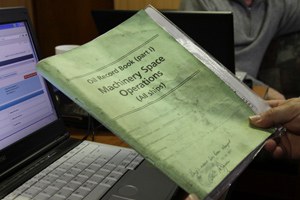
At its 73th session, the Marine Environment Protection Committee (MEPC) agreed that it was not necessary for the Port State Control authorities to take a ‘practical and pragmatic’ approach, since compliance with the new limits from the date of coming into force was expected. Therefore, ParisMoU and TokyoMoU have agreed that they will enforce the requirements in terms of the application without exception. This also includes the carriage ban of non-compliant fuel from 1st March 2020. More on this in their press release.


